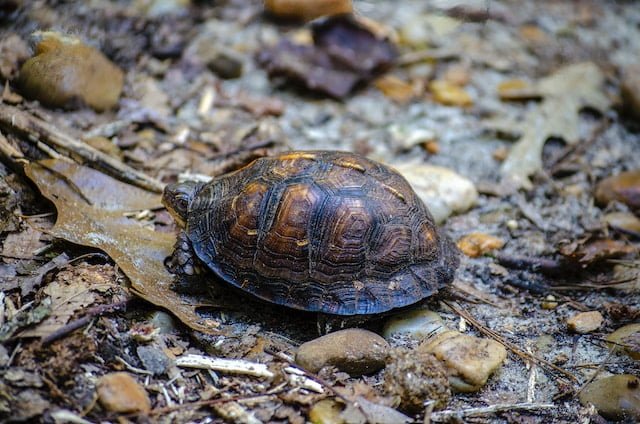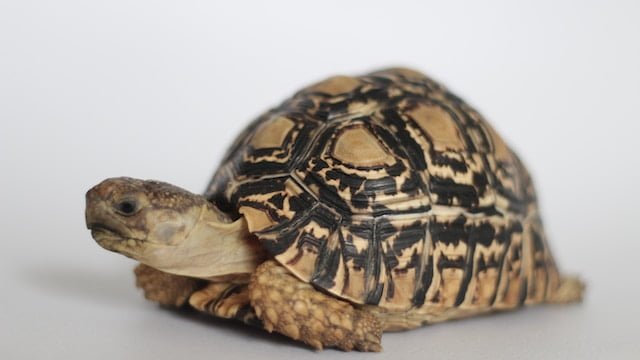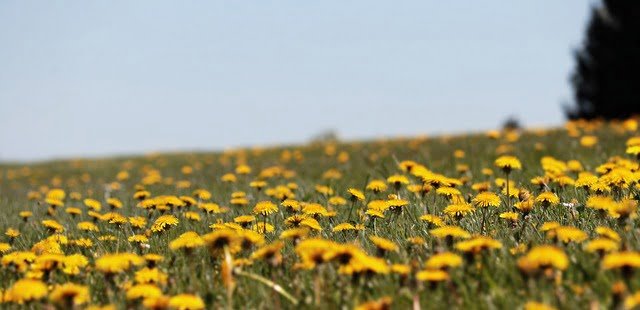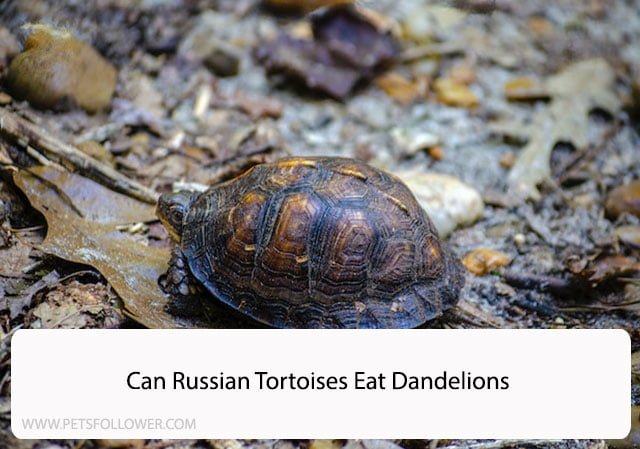Russian tortoises are popular pets due to their small size, hardy nature, and easy care requirements. One common question that tortoise owners may have is whether their pet can eat dandelions. In this article, we will explore the topic of whether Russian tortoises can safely consume dandelions as part of their diet.
Dandelions are a common weed found in many areas, and they are often considered a nuisance. However, they are also a nutritious food source for many animals, including tortoises. While some plants can be harmful or toxic to tortoises, dandelions are generally considered safe for them to eat. However, there are some factors to consider when feeding dandelions to your Russian tortoise, such as the type of soil they were grown in and any pesticides or herbicides that may have been used.

Russian Tortoises: A Brief Overview
Russian tortoises, also known as Horsfield’s tortoises, are small and hardy tortoises that are native to Central Asia. They are popular as pets due to their manageable size, ease of care, and friendly personalities.
Adult Russian tortoises typically grow to be between 6 and 8 inches in length and can live for up to 50 years in captivity. They are herbivores, meaning they primarily eat plants. In the wild, their diet consists of a variety of grasses, flowers, and leafy greens.
Russian tortoises are known for their ability to withstand harsh environmental conditions, including extreme temperatures and dry climates. They are also excellent diggers and will often burrow underground to escape the heat or cold.
When it comes to caring for a Russian tortoise, it is important to provide them with a suitable habitat that includes a heat source, a UVB light, and a variety of foods to ensure they receive proper nutrition.
Overall, Russian tortoises are a great choice for anyone looking for a low-maintenance and friendly pet.
Dandelions and Their Nutritional Profile
Dandelions are a common plant found in many parts of the world, and they are often considered a weed. However, they are also a nutritious food source for many animals, including Russian tortoises. In this section, we will explore the nutritional profile of dandelions and their potential benefits for Russian tortoises.
Dandelions are rich in vitamins and minerals, including vitamin A, vitamin C, calcium, iron, and potassium. They are also a good source of fiber and antioxidants. The following table provides a breakdown of the nutritional content of dandelions per 100 grams:
| Nutrient | Amount per 100g |
|---|---|
| Calories | 45 |
| Protein | 2.7g |
| Fat | 0.7g |
| Carbs | 9.2g |
| Fiber | 3.5g |
| Vitamin A | 558% of Daily Value |
| Vitamin C | 35% of Daily Value |
| Calcium | 10% of Daily Value |
| Iron | 14% of Daily Value |
| Potassium | 10% of Daily Value |
Russian tortoises require a diet that is high in fiber and low in protein and fat. Dandelions are an excellent source of fiber, making them a good addition to a tortoise’s diet. They also contain a moderate amount of protein and very little fat, which is ideal for tortoises.
In addition to their nutritional content, dandelions have been used for medicinal purposes for centuries. They are believed to have anti-inflammatory and diuretic properties, which may be beneficial for tortoises with certain health conditions.
Overall, dandelions are a nutritious and beneficial food source for Russian tortoises. However, it is important to ensure that they are free of pesticides and other harmful chemicals before feeding them to your tortoise.
Can Russian Tortoises Eat Dandelions
Dandelions are a common plant found in many gardens and fields across the world. They are also a common food source for many herbivorous animals, including tortoises. But can Russian tortoises eat dandelions?
Yes, Russian tortoises can eat dandelions. In fact, dandelions are a nutritious and healthy food option for them. Dandelions are high in fiber, vitamins A and C, calcium, potassium, and iron. These nutrients are essential for the health and well-being of Russian tortoises.
However, it is important to note that dandelions should not be the only food source for Russian tortoises. A varied diet consisting of different types of vegetables and fruits is necessary for their overall health.
When feeding dandelions to Russian tortoises, it is important to ensure that they are free of pesticides and other harmful chemicals. It is also important to wash them thoroughly before feeding.
In conclusion, Russian tortoises can eat dandelions as part of a balanced diet. They are a healthy and nutritious food source for these herbivorous animals.
Benefits of Dandelions for Russian Tortoises
Dandelions are a common weed found in many gardens and fields. However, they are not just weeds, they can also be a nutritious food source for Russian tortoises. In this section, we will discuss the benefits of dandelions for Russian tortoises.
Firstly, dandelions are a good source of fiber, which is essential for the digestive health of tortoises. The fiber in dandelions can help to regulate their digestive system and prevent constipation. In addition, dandelions are low in fat, making them a good choice for tortoises that need to maintain a healthy weight.
Secondly, dandelions are rich in vitamins and minerals that are important for the overall health of Russian tortoises. For example, dandelions are high in vitamin A, which is essential for healthy eyesight and a strong immune system. They also contain vitamin C, which can help to boost the immune system and protect against disease.
In addition, dandelions are a good source of calcium, which is important for the growth and maintenance of strong bones and shells. They also contain potassium, which can help to regulate blood pressure and maintain a healthy heart.
Finally, dandelions are a natural source of antioxidants, which can help to protect against oxidative stress and reduce the risk of disease. Antioxidants can also help to boost the immune system and promote overall health and wellbeing.
Overall, dandelions can be a nutritious and healthy food source for Russian tortoises. However, it is important to ensure that they are fed in moderation and as part of a balanced diet.

Potential Risks of Feeding Dandelions to Russian Tortoises
Feeding dandelions to Russian tortoises can be a healthy and nutritious addition to their diet. However, there are a few potential risks that should be considered before adding dandelions to their regular diet.
One of the main risks of feeding dandelions to Russian tortoises is the possibility of pesticide contamination. Dandelions are often found growing in lawns and gardens where pesticides may have been used. These chemicals can be harmful to tortoises and may cause health problems if ingested.
Another risk is the potential for dandelions to cause digestive issues. While dandelions are generally safe for tortoises to eat, they do contain high levels of oxalates. Oxalates can bind to calcium in the tortoise’s digestive tract, making it difficult for them to absorb the necessary nutrients. This can lead to health problems such as metabolic bone disease.
It is also important to note that dandelions should only be fed to Russian tortoises in moderation. While they are a nutritious food source, they should not make up the majority of their diet. Overfeeding dandelions can lead to an imbalance in their diet, which can cause health problems over time.
In conclusion, feeding dandelions to Russian tortoises can be a healthy addition to their diet, but it is important to be aware of the potential risks. Always ensure that the dandelions are pesticide-free and feed them in moderation to avoid digestive issues and nutrient imbalances.
How to Feed Dandelions to Russian Tortoises
Feeding dandelions to Russian tortoises is a great way to supplement their diet with essential nutrients. However, it is important to ensure that the dandelions are safe and healthy for your pet. Here are some tips on how to feed dandelions to Russian tortoises:
- Choose fresh and organic dandelions: It is important to choose fresh and organic dandelions that are free from pesticides and other harmful chemicals. You can either pick them from your garden or buy them from a trusted source.
- Wash the dandelions thoroughly: Before feeding the dandelions to your tortoise, make sure to wash them thoroughly to remove any dirt or debris.
- Cut the dandelions into small pieces: Russian tortoises have small mouths, so it is important to cut the dandelions into small pieces to make it easier for them to eat.
- Offer dandelions in moderation: While dandelions are safe for Russian tortoises to eat, they should be offered in moderation. Too much dandelion can cause digestive issues and diarrhea.
- Monitor your tortoise’s health: After feeding your tortoise dandelions, monitor their health for any signs of discomfort or illness. If you notice any issues, stop feeding them dandelions and consult with a veterinarian.
In conclusion, feeding dandelions to Russian tortoises can be a healthy and nutritious addition to their diet. By following these tips, you can ensure that your pet is getting the best possible nutrition while staying healthy and happy.
Other Diet Considerations for Russian Tortoises
In addition to dandelions, there are other food items that can be included in a Russian tortoise’s diet. Here are some other diet considerations for Russian tortoises:
Vegetables
Russian tortoises can eat a variety of vegetables. Some of the vegetables that can be included in their diet are:
- Collard greens
- Kale
- Mustard greens
- Turnip greens
- Endive
- Escarole
- Romaine lettuce
- Carrots
- Squash
- Zucchini
It is important to note that vegetables should be given in moderation as they are high in water content and can cause diarrhea if given in excess.
Fruits
Fruits can also be included in a Russian tortoise’s diet, but they should be given in moderation as they are high in sugar. Some of the fruits that can be given to Russian tortoises are:
- Apples
- Pears
- Berries
- Melons
- Mangoes
- Papayas
Protein
Russian tortoises are herbivores, but they do require some protein in their diet. Protein can be given in the form of:
- Commercial tortoise food
- Boiled chicken
- Hard-boiled eggs
- Mealworms
- Crickets
It is important to note that protein should be given in moderation as too much protein can cause health problems for Russian tortoises.
Calcium
Calcium is an important nutrient for Russian tortoises as it helps in the development of their shells. Calcium can be given in the form of:
- Cuttlebone
- Calcium blocks
- Calcium powder
It is important to ensure that the calcium supplement is appropriate for Russian tortoises and that it is given in the right amount.
Overall, a varied diet is important for the health and well-being of Russian tortoises. It is important to provide them with a balanced diet that includes a variety of food items in moderation.
Conclusion
In conclusion, Russian tortoises can eat dandelions. However, it is important to keep in mind that moderation is key. Dandelions should not make up the majority of a tortoise’s diet, but they can be a healthy addition in small quantities.
As we have discussed, dandelions are rich in vitamins and minerals that can benefit a tortoise’s health. They are also low in calories and high in fiber, making them a good choice for tortoises that need to maintain a healthy weight.
When feeding dandelions to your Russian tortoise, it is important to ensure that they are free from pesticides and other harmful chemicals. It is also important to avoid feeding them dandelions that have been picked from areas where there is heavy vehicle traffic or other sources of pollution.
Overall, dandelions can be a nutritious and tasty treat for your Russian tortoise, but they should be fed in moderation and with care. As with any new food, it is important to introduce dandelions slowly and watch for any signs of digestive upset or other health issues.

Frequently Asked Questions
What can Russian tortoises eat besides dandelions?
Russian tortoises can eat a variety of vegetables, fruits, and plants. Some of the recommended options include collard greens, mustard greens, endive, escarole, and turnip greens. They can also eat fruits like apples, bananas, and berries.
Can Russian tortoises safely eat kale?
Yes, Russian tortoises can eat kale in moderation. However, kale should not be the only vegetable in their diet as it contains high levels of calcium oxalate which can lead to health problems if consumed in excess.
Is it safe for Russian tortoises to eat tomato?
Tomatoes are safe for Russian tortoises to eat, but they should be given in moderation as they contain high levels of acidity. Always remove the seeds and skin before feeding them to your tortoise.
What part of a dandelion can a tortoise eat?
Russian tortoises can eat the entire dandelion plant, including the leaves, flowers, and stem. However, make sure to avoid dandelions that have been sprayed with pesticides or other chemicals.
What flowers can tortoises eat?
Tortoises can eat a variety of flowers, including hibiscus, pansies, and roses. However, make sure to avoid flowers that have been sprayed with pesticides or other chemicals.
What weeds can Russian tortoises safely eat?
Russian tortoises can safely eat weeds like clover, plantain, and chickweed. However, make sure to avoid weeds that have been sprayed with pesticides or other chemicals.





